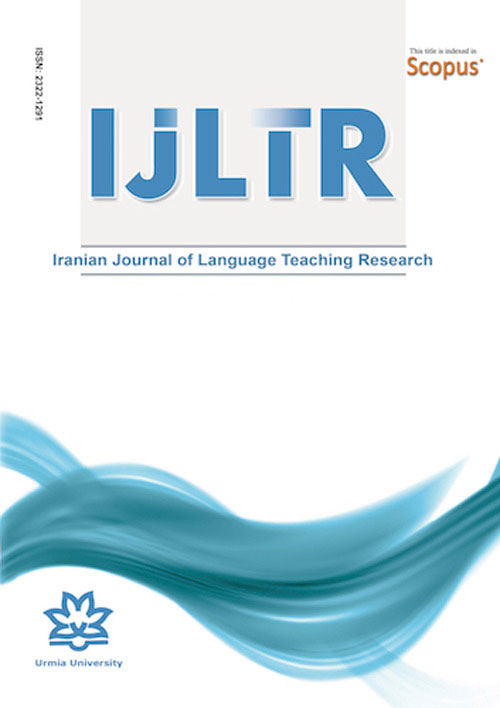Classroom Assessment Literacy for Speaking: Exploring Novice and Experienced English Language Teachers? Knowledge and Practice
Author(s):
Article Type:
Research/Original Article (دارای رتبه معتبر)
Abstract:
Despite many studies on assessment literacy, scant attention has been devoted to classroom assessment literacy for speaking. To bridge this gap, the present study set out to explore novice and experienced English as a foreign language (EFL) teachers’ classroom assessment literacy for speaking. Twenty-six novice and experienced EFL teachers first completed three scenarios to collect data about their practices for speaking assessment. Afterwards, they went through semi-structured interview to elicit their speaking assessment knowledge. Both scenarios and interviews were framed using Xu and Brown’s (2016) six-component framework of teacher assessment literacy. The focus of this study was on the teacher knowledge base, which is the second component in this framework and consists of knowledge of assessment purposes, content/criteria, and methods. Novice and experienced EFL teachers’ scenario data were content analyzed through a summative approach, which led to the discovery of formative assessment and diagnostic assessment as their knowledge of assessment purposes in practice. Moreover, this analysis shed light on the teachers’ six assessment criteria in practice, including accuracy, fluency, vocabulary, pronunciation, communication, and content. As to the teachers’ assessment methods in practice, the findings revealed their use of role play, monolog, picture story, and questions and answers. The interview data were transcribed and content analyzed through a summative approach as well, which resulted in three main categories of assessment
purposes
formative assessment, diagnostic assessment, and summative assessment. Besides knowledge of assessment purposes, the interview data substantiated the scenario findings about the teachers’ assessment criteria and their beliefs about various assessment methods such as role plays, monologs, and authentic tasks. Although divergence between novice and experienced teachers’ beliefs was moderate, the data demonstrated more consistency in the experienced teachers’ assessment literacy for speaking. The findings imply that EFL teachers need awareness of their underlying knowledge about speaking, which is the product of their past education and language teaching experiences.Keywords:
Language:
English
Published:
Iranian Journal of Language Teaching Research, Volume:6 Issue: 3, Oct 2018
Pages:
57 to 77
magiran.com/p1883328
دانلود و مطالعه متن این مقاله با یکی از روشهای زیر امکان پذیر است:
اشتراک شخصی
با عضویت و پرداخت آنلاین حق اشتراک یکساله به مبلغ 1,390,000ريال میتوانید 70 عنوان مطلب دانلود کنید!
اشتراک سازمانی
به کتابخانه دانشگاه یا محل کار خود پیشنهاد کنید تا اشتراک سازمانی این پایگاه را برای دسترسی نامحدود همه کاربران به متن مطالب تهیه نمایند!
توجه!
- حق عضویت دریافتی صرف حمایت از نشریات عضو و نگهداری، تکمیل و توسعه مگیران میشود.
- پرداخت حق اشتراک و دانلود مقالات اجازه بازنشر آن در سایر رسانههای چاپی و دیجیتال را به کاربر نمیدهد.
In order to view content subscription is required
Personal subscription
Subscribe magiran.com for 70 € euros via PayPal and download 70 articles during a year.
Organization subscription
Please contact us to subscribe your university or library for unlimited access!


